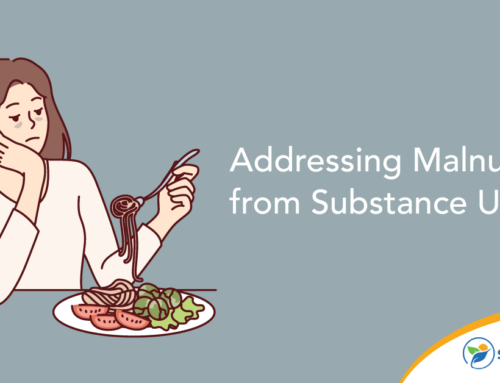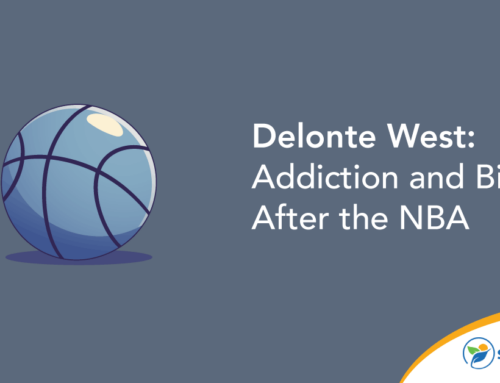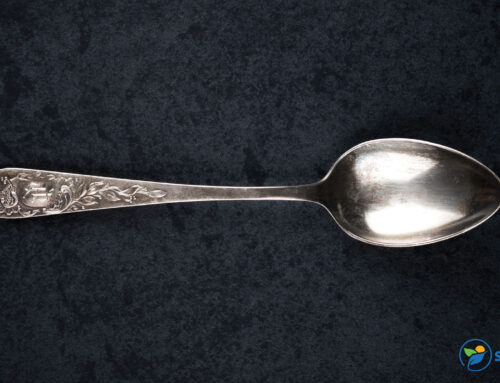Pot is a common slang term for marijuana or weed, a popular drug often used for recreational purposes. The leaves, flowers, stems and seeds of cannabis plants contain THC, a compound that can be smoked, vaped, dabbed or infused into drinks and foods to induce a pleasurable “high,” or euphoric sensation that spreads throughout the body. THC also blocks pain receptors, causing a feeling of relaxation, improved mood and enhanced overall well-being.
Many believe pot is a natural drug that can’t cause addiction. However, 30% of marijuana users develop cannabis use disorder, a condition that makes it difficult to stop using pot even when it interferes with their personal, relationship, social and professional lives. While the likelihood of developing a marijuana addiction is lower compared to that of drugs such as cocaine, the effects of frequent or continued use can be dangerous and even fatal.
People who use pot may not notice or acknowledge that they’ve developed a dependency on the drug. Knowing the telltale signs of weed addiction can help you determine if someone you know, such as a boyfriend, is addicted to weed so they can get treatment. Follow along as the addiction specialists from Sunlight Recovery outline the signs of marijuana addiction and provide resources you can use to get support and treatment for a friend, parent, sibling, child, partner or husband addicted to weed.
How Weed Works
Marijuana is among the most used substances in the United States, with over 48 million annual users. For a long time, people smoked pot using blunts, joints and bongs. However, the legalization of marijuana for medicinal and recreational purposes has made edibles the preferred means of marijuana consumption for over 30% of adults. Vaping and cannabis data from the National Institute on Drug Abuse (NIDA) shows a steady rise in weed vaping among college students over the years, reaching a 14% spike in 2019. Pot use is also common among high school students, with 11% of 8th graders, 28% of 10th graders and over 35% of seniors admitting to using weed in 2020.
Weed interferes with the way chemicals in the brain work and communicate. THC activates the brain’s reward centers, increasing the amount of dopamine it releases. As this “feel-good” hormone spreads over the body, the person using weed experiences a feeling of calmness that relieves stress, lowers anger and increases happiness. Your loved one may speak slowly, laugh a lot, slouch while sitting or fall asleep once the weed takes effect.
THC also makes the brain release hormones that induce hunger. A loved one who’s high can experience “the munchies,” a desire to eat that leads them to order food at strange hours or consume sweet, fatty foods they normally wouldn’t eat.
The method of using weed determines how long a high lasts. The high from smoking or vaping can peak in 10 minutes and last for a couple of hours, while the high induced by edibles can peak after 2 hours and last for more than 8 hours.
Recognizing Signs of Problematic Use
The mellow mood, heightened happiness and increased appetite a loved one experiences after smoking pot can seem harmless and even beneficial. However, when does using marijuana cross the line between casual fun and abuse or addiction? The Centers for Disease Control and Prevention (CDC) outlines these signs of problematic pot use:
- Using more weed than intended
- Craving marijuana
- Having to increase the quantity of weed used to get high
- Difficulty controlling or stopping pot use
- Using weed in high-risk situations, such as when caring for children or while driving or operating machinery
- Abandoning self-care, relationships and school or professional responsibilities to use weed
- Experiencing withdrawal symptoms such as irritability, aggression, loss of appetite and restlessness when not using marijuana
Marijuana affects the areas of the brain responsible for learning and memory, so continued use can severely and permanently reduce the brain’s ability to think, concentrate, learn and form new memories.
THC is psychoactive, so taking large quantities of the substance can cause psychotic effects such as hallucinations and delusions. Marijuana psychosis is a distressing condition that makes the user anxious and paranoid, necessitating immediate medical attention.
You can tell if someone you know, such as a boyfriend, is addicted to weed once they start experiencing adverse psychological, physical and social effects after using marijuana. When that happens, it’s time to discuss their pot use.
Opening Up the Conversation: Initiating a Nonjudgmental Discussion
Addiction is a highly stigmatized mental health condition, so someone who’s developed a weed addiction may be reluctant to accept that they have a problem. Weed ruins relationships, especially if a loved one refuses to face their addiction and get help. However, it’s essential to have a conversation before your loved one falls victim to the long-term effects of weed use.
To carefully and tactfully open the conversation on pot use and addiction:
- Approach your loved one privately when they’re sober.
- Mention the reasons for your concern, giving specific examples of disturbing or dangerous behavior.
- Explain how pot use has affected your relationship.
- Set firm boundaries, explaining what you desire from them — for example, not using weed in the house or around children.
- Refuse to enable their behavior by clarifying that you won’t give them money to buy weed or defend them if they get in trouble in school, at work or with the law.
- Provide well-researched resources on treatment and support programs for people with a weed addiction.
- Assure them of your full support if they seek professional assistance to stop using weed.
If your spouse, partner or boyfriend is addicted to weed, they may respond to conversations about their drug use with denial, defensiveness, anger and even aggression. Instead of getting discouraged by such reactions, step back and broach the subject later. Stick to your boundaries by removing rolling papers, bongs and any marijuana from the home. Withdraw financial support and safeguard your bank accounts so they can’t use your money to fund the addiction.
Be prepared to call the police and go to a safe place if they threaten to harm you, themselves or others. Enlisting the help of social workers or addiction specialists when you’re ready to initiate another conversation can make future interventions to help someone stop smoking weed more fruitful.
Available Resources and Support
If your friend, relative or boyfriend is addicted to weed, enrolling them in an addiction treatment program is the best way to help them overcome weed addiction. Treatment centers offer cognitive behavioral therapy and motivational enhancement therapy to help people build internal coping mechanisms against the desire to smoke pot. Group therapy is another useful treatment that helps addicts find support among people who can relate to their struggle with weed.
Call the national helpline to find treatment centers close to you offering emergency or long-term treatment for pot use. If you’re in Florida, contact the specialists at Sunlight Recovery to learn about the different treatments for weed addiction and the admission process for our renowned facility in South Florida.







